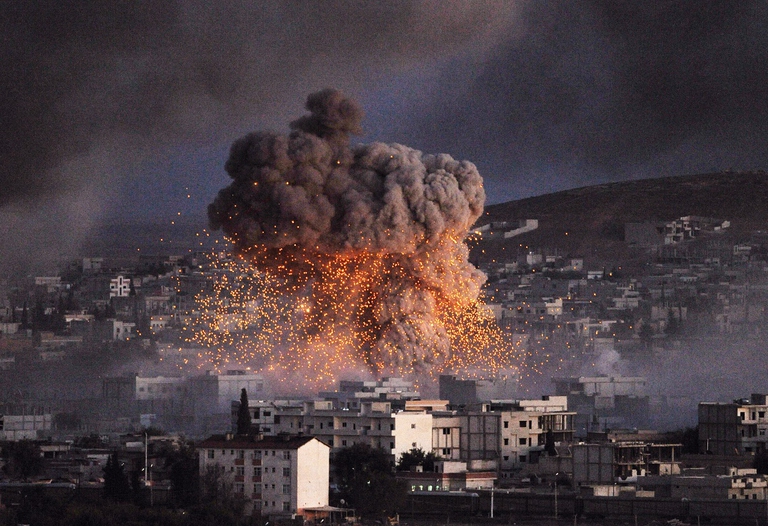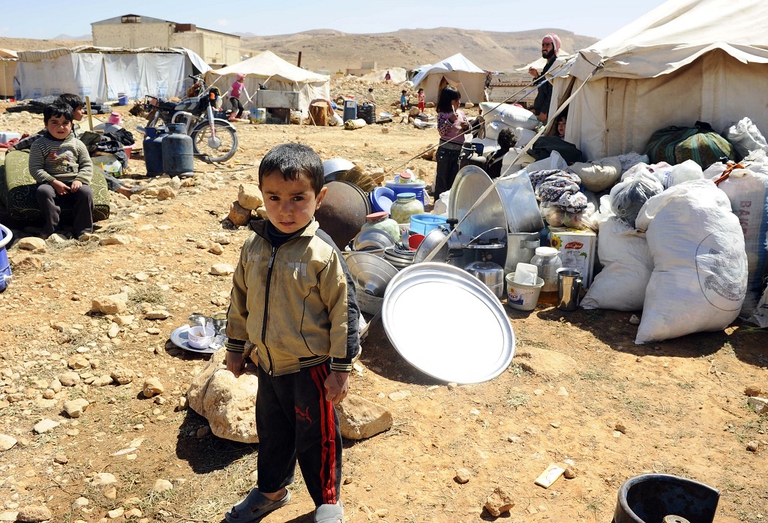
A report by Ember explains that in 2025 electricity generation from renewables (solar, wind and hydropower) surpassed that from fossil fuel sources.
Syrian drought, exacerbated by human-related activities, seems to have contributed to trigger the conflict that is putting the country on its knees and is causing millions of refugees.
Millions of displaced people, thousands of deaths, and relentless flows of refugees trying to enter Europe. The consequences of the Syrian civil war, started in March 2011 following the protests of the Arab Spring, are clear, but the causes that triggered it could be multifaceted.
One of the main causes has political implications. The regime of Bashar al-Assad has for too long denied basic freedoms and the possibility of free elections to Syrians, thus triggering the anti-government insurrection that ended up in the civil war.
Among the reasons that favoured the outbreak of the conflict is the most banal and ancient one: water. In fact, between 2007 and 2010 Syria was hit by a severe drought, the worst registered in the country over the last century, which left a million small farmers unemployed, and caused the migration of rural population towards cities. A study published in the journal Proceedings of the National Academy of Sciences, shows how drought in Syria intensified social uprising, exacerbating the pre-existing political instability.
According to the team of researchers, the water crisis – caused by decreaed winter rainfall and rising temperatures – has probably been worsened by human-driven climate change. “We’re not saying the drought caused the war,” said Richard Seager, climate scientist at Columbia University’s Lamont-Doherty Earth Observatory and co-author of the study. “We’re saying that added to all the other stressors, it helped kick things over the threshold into open conflict”.
Along with climate change, Syria’s water shortage could be attributed to the unsustainable management of aquifers that – excessively exploited – led to the depletion of irrigation wells. Syria proves how the effects of environmental degradation and global warming can significantly affect countries’ political stability, with consequences on a global level.
Just like the notion that a butterfly flapping its wings is able to cause a hurricane on the other side of the planet, the world is a sole and interconnected entity. Borders and boundaries are nothing other than drawings on maps, and wars in faraway countries can have a knock-on effect in others thought to be unrelated.
The international meeting Environmental Justice and Climate Change highlighted how climate change will have negative consequences on the efforts made to reduce poverty, causing an increasing malnutrition and up to 250 million climate refugees over the next few years.
It may seem trivial, but trying to solve the causes of migrations rather than contain them is the best solution. The environmental causes of wars shouldn’t be underestimated, since food and water will play an evermore important role in the coming years. Restoring countries’ natural systems (and, therefore, their economies) would help reduce poverty and conflicts.
Siamo anche su WhatsApp. Segui il canale ufficiale LifeGate per restare aggiornata, aggiornato sulle ultime notizie e sulle nostre attività.
![]()
Quest'opera è distribuita con Licenza Creative Commons Attribuzione - Non commerciale - Non opere derivate 4.0 Internazionale.
A report by Ember explains that in 2025 electricity generation from renewables (solar, wind and hydropower) surpassed that from fossil fuel sources.
The Tyler Prize, considered the “Nobel Prize for the Environment,” has been awarded to Toby Kiers, an American biologist working in Amsterdam.
Belgium is one of the countries most exposed to climate change. Dune–dikes are a solution to curb sea-level rise.
Between October 2024 and September 2025, the average temperature in the Arctic was 1.6 degrees Celsius higher than during the 1991–2020 period.
Undeclared conflicts of interest, paid authors, lack of transparency: one of the most cited studies on glyphosate, published in 2000, has been retracted.
The Copernicus service has released data for the first eleven months of 2025: global warming is set to come close to last year’s record.
The European Council and Parliament have reached an agreement on the European Commission’s proposal to deregulate new GMOs. But farming, organic agriculture, and environmental organizations are calling for it to be stopped.
The world’s second-largest producer has taken a historic decision. However, farms will have until 2034 to shut down.
A Greenpeace report denounces Russia’s political and economic model: a nexus of extractivism, authoritarianism and war that is destroying the environment, with serious repercussions for the global ecosystem.









